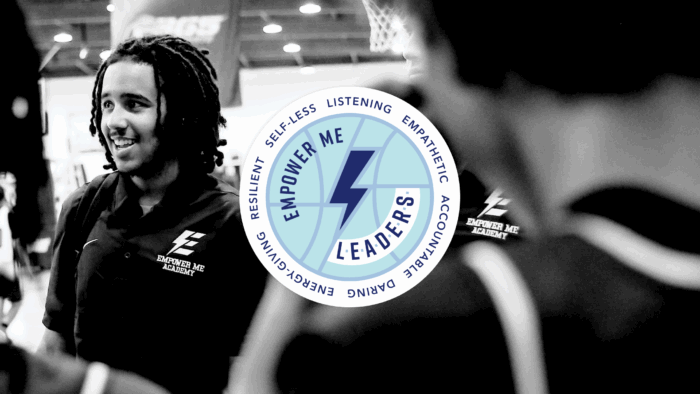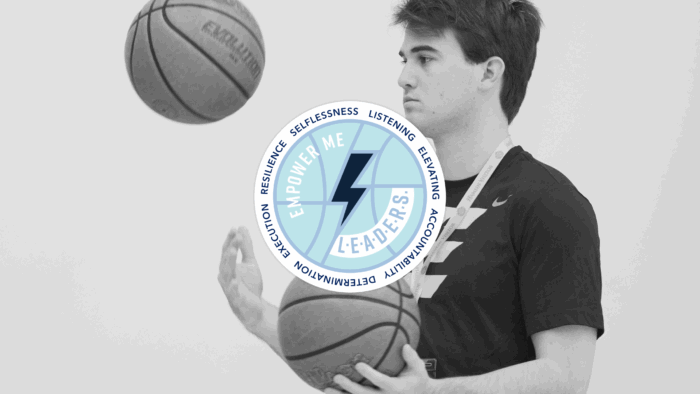According to research by the Greater Good Science Center at UC Berkeley, “people who practice gratitude feel considerably happier (25%) than those in a control group; they are more joyful, enthusiastic, interested, and determined. And in teens, they are not only more pleasant to be around, but according to studies, they are also less likely to abuse drugs and alcohol, be depressed and have behavioral problems at school.”
In other words, you don’t have to wait until you have the perfect life to be happy — you can choose it right now by focusing on what you’re grateful for and encouraging your children to do the same. As parents, we fall into the trap of wanting our children to be happy by showering them with gifts and accolades. We often protect our children from the natural consequences of their actions and do all kinds of things to prevent their pain or unhappiness.
An attitude of gratitude helps everyone thrive.
By learning gratitude, children develop empathy—they become more sensitive to the feelings of others and strengthen their innate capacities for selflessness. Conversely, entitled children end up feeling perpetually dissatisfied. Sometimes, in our efforts to instill gratitude, we use approaches that look similar to appreciation but have unintended adverse effects.
First, let’s make sure we know what Gratitude is not.
- Lecturing your child about how entitled they are or threatening to take away their privileges.
- “Other children would give anything to have what you have,” and other comments like these are comparisons, not lessons in gratitude. This kind of “reverse envy” is more likely to inspire greed and guilt than gratitude.
- Feeling obligated to return a favor or do something kind to get out of another person’s debt is not gratitude.
- Lavishing gifts or compliments on someone isn’t necessarily an expression of gratitude.
- Some people have questionable motives behind their feelings of gratitude. For example, kind words may be used to manipulate someone into doing something, exert control or secure someone’s loyalty or good favor.
Now, how to nurture a Grateful child.
- Just say “thank you.” It’s that simple… When the words “thank you” are instilled in our students’ vocabulary, a lifelong practice begins even if it doesn’t stick at first.
- Start a tradition. Make gratitude a habit; for example, go around the dinner table saying one thing you’re grateful for or reflect on the day at bedtime noting the small stuff you enjoyed.
- Model Gratitude. Encourage and celebrate others’ successes until it becomes a habit. Set a culture for students to observe other siblings’ progress and show gratitude by communicating you’ve paid attention to their real effort when they do so. Gratitude isn’t just a lesson to be taught to children, but also an ongoing exercise in learning for parents. Instead of clamoring for the newest gadget, work on being grateful for what you have right now.
- Create daily or weekly routines within the experiences. After each session, we request that each student say three things to their parents or guardians: thanks for the opportunity, thanks for bringing me, and I love you!
- Thank those who serve. Your example of acknowledging those who quietly make a difference in your life, from the coffee maker at your local coffee shop to the person cleaning up the aftermath of a family dining out, sends a powerful message to your children.
- Serve others. Service can be part of a child’s life from a young age. Get our kids involved in decorating thank-you notes, baking cookies for a friend or donating belongings to less fortunate children — and point out how good it feels to make someone else’s day brighter.
- Practice Mindfulness. Take time to appreciate the things that go unnoticed such as trees, weather, and people around you, and you’ll model mindfulness for your kids.
- Teach patience by being patient. Kids can’t be influenced into showing appreciation, but your gentle efforts and examples will instill gratitude as a way of life.
We’ve all heard the saying “happiness is a choice.” While it can be difficult to choose happiness in tough times, just like the research suggests, happiness is, in fact, less the result of circumstance and more the product of our thinking [positive thoughts] and habits.





 Gift Now
Gift Now